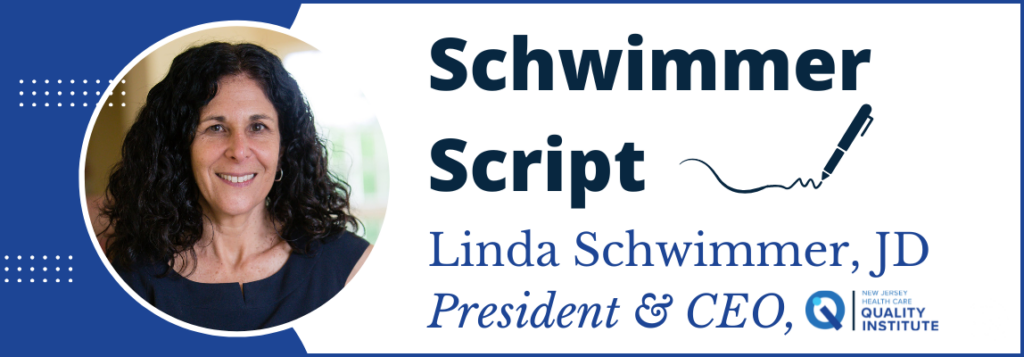Like many of you, I read with alarm that the CDC removed terminology, data and resources related to equity from its website, part of the broader effort to remove diversity, equity, and inclusion initiatives in federal government.
The Quality Institute began 27 years ago during a renaissance of nonpartisan, nonpolitical thought leadership focused on the need to fundamentally change our health care system. Too many people were dying or harmed from preventable errors. The work, led by the Institute of Medicine, started with the report To Err is Human: Building a Safer Health System. Next came Crossing the Quality Chasm: A New Health System for the 21st Century. The central argument of the second report is that we need to fundamentally reform health care “to ensure that all Americans receive care that is safe, effective, patient centered, timely, efficient, and equitable.”
These reports have driven much of the work that has gone on to increase transparency on safety; to develop measures to track and report quality; and to collect data to determine progress and identify where there may be progress for some groups but not others. These efforts work toward the creation of a higher quality, safer health system for everyone.
Having an equitable health care system means that patient care does not vary in quality because of the characteristics of the patient: race, ethnicity, language, gender, where one lives, or socioeconomic status. We must continue the work towards this goal. We cannot have quality in health care without focusing on equity.
At the Quality Institute, where we are a Regional Leader of The Leapfrog Group, we have a conference today to support hospitals seeking Joint Commission Health Care Equity Certification. It is a voluntary advanced certification. To be certified, hospitals must improve data collection and analysis of disparities in care and work to address them. These hospitals make health care equity a pillar of their organizations.
Beyond the Joint Commission certification, many of you are working to advance equity in health care. I urge all of you to remain committed to your important efforts toward improving health care quality for all your patients. Thank you for your commitment and partnership is this important work.

